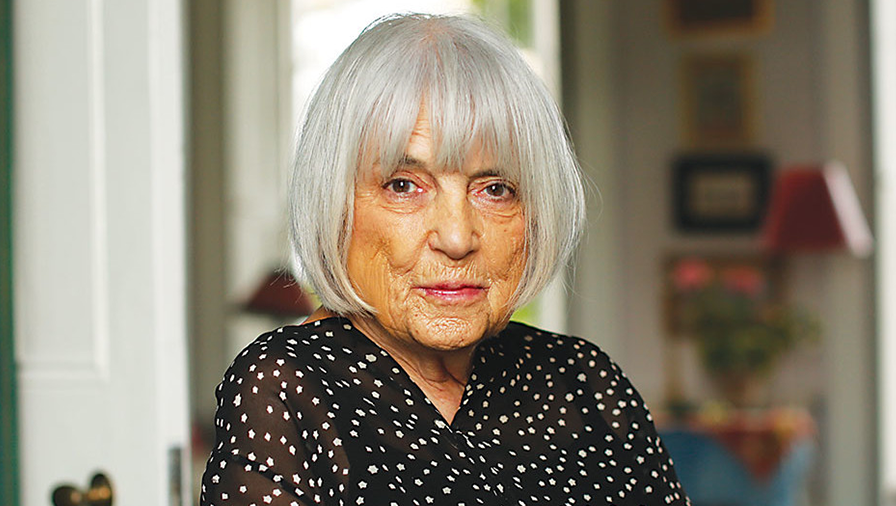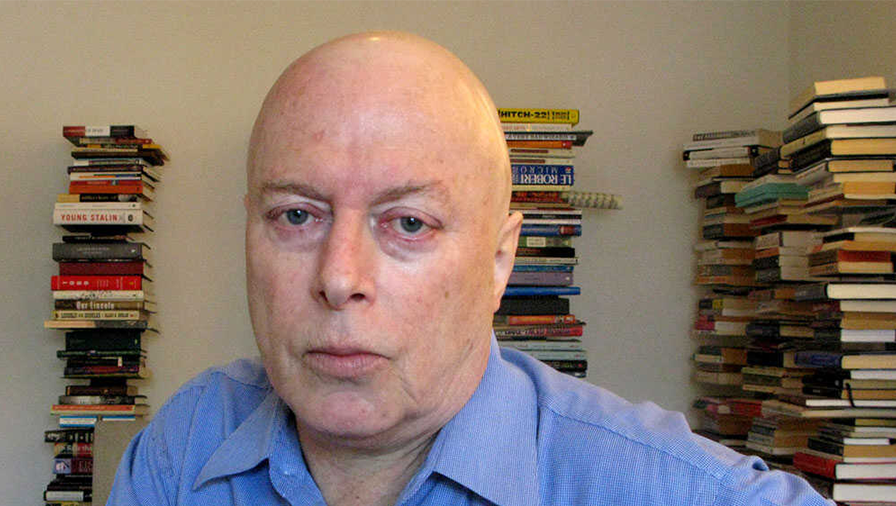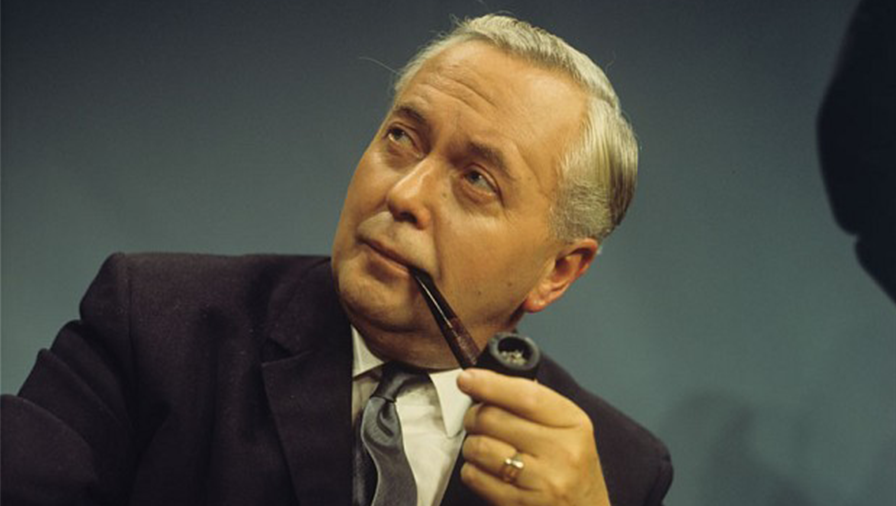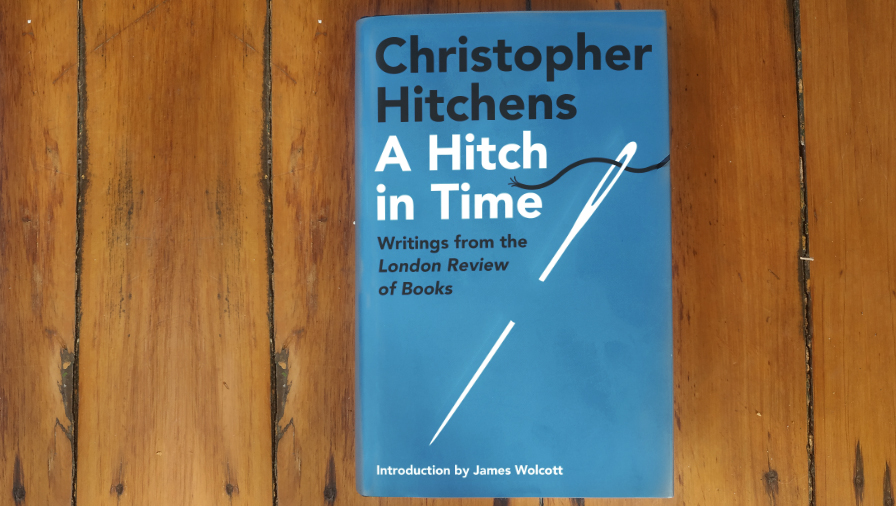

Christopher Hitchens: Controversy was his middle name
OPINION: A collection of commentaries and articles from the London Review of Books.


OPINION: A collection of commentaries and articles from the London Review of Books.
Not many durable cultural institutions owe their existence to militant action by trade unions.
During the 1962-63 New York City newspaper strike, when the New York Times and several other newspapers suspended publication, a group of critics fulfilled their dream of a publication devoted to serious book reviews.
Publishers, denied a vehicle for their advertising, agreed and the New York Review of Books was born on February 1, 1963, and sold out its first printing of 100,000 copies.
In 1979, when a lock-out at Rupert Murdoch’s Times newspaper group suspended publication of the Times Literary Supplement (TLS), the enterprising New Yorkers launched the London Review of Books (LRB) as an insert to meet British publishers’ demands for a vehicle to keep the reading public aware of their products. In 1980, the LRB became an independent publication.
Both still thrive today, competing against the book supplements they temporarily replaced. Their formats remain dauntingly similar; they have resisted moves to break out of their text-heavy layouts and essay-length reviews, which often cover multiple books.
They remain more radical in outlook than their established rivals and maintain a raft of writers and reviewers that are unmatched in their respective countries. This is largely due to long periods of consistent editorship and preparedness to endure controversies, which among intellectuals can become bitter.

Feared and demanding
Mary-Kay Wilmers, a former editor at the TLS, was a founder and financier of the LRB, becoming the sole editor in 1992 until her retirement in 2021. The length of the pieces she commissioned, and her dislike of being topical for the sake of it, gave her a reputation as a demanding editor, even one to be feared.
That was certainly the case with Christopher Hitchens, one of the most controversial journalists of his day. Two of his emails to Wilmers are included in A Hitch in Time, James Wolcott’s collection of 20 commentaries and book reviews from the 60-odd Hitchens wrote from 1983-2002.
The first email, written in 1996, concerns a rebuke from Wilmers over something Hitchens wrote for a Murdoch newspaper. The other, near the end of his stint for the LRB, is a response to a request for an article on the 9/11 attacks and written on September 20, 2001. “I hope very much the LRB isn’t going to adopt any fatuous Chomskyan line …” while explaining why he couldn’t meet the deadline she suggested.
Instead, he offered her a piece he had written for the Nation, a left-wing American magazine, and one from which he had resigned over its opposition to the second American attack on Iraq. In his political views, Hitchens had moved from far-Left Troskyism at university to a neo-conservative one that supported the overthrow of authoritarian states and specially ones based on Islam or communism.
This evolution brought down the wrath of the Left in his homeland of Britain but his contrarianism elevated him to high status in his adopted country of the US, where he became a citizen in 2007. His success as an author also enabled him to ease back on freelance journalism and reviewing.

Campaign against religion
Apart from the Iraq war, Hitchens waded into other public controversies, most famously religion (God is Not Great), as well as charting his own death from cancer in 2011 (Mortality). His most notorious book was The Missionary Position, an attack on Mother Teresa of Calcutta. He championed George Orwell (Orwell’s Victory) when his star appeared to be fading, and took the negative in a debate with Tony Blair on ‘Religion is a force for good in the world’ (Hitchens vs Blair).
Atlantic Books has responded to posthumous demand by reprinting his nine bestselling titles with standardised covers. A Hitch in Time has joined them with material that has not previously appeared between hard covers.
Four pieces each are sourced from 1995 and 1998 when, on the 30th anniversary of the 1968 student uprisings in Europe and America, Hitchens declared the Death of Communism as a viable political movement in the West. It was also the year of the Tet offensive in Vietnam; the Solidarity strikes in Poland; the murders of Martin Luther King and Robert Kennedy; the Soviet invasion of Czechoslovakia; and riots in the American ghettoes and the Chicago convention of the Democratic Party.
“... [A] year of crisis and opportunity exposed [the communists] to awkwardness, put them on the defensive, found them stammering and unprepared. Their international fraternity of parties had become so contorted and congested by past lies and reversals that they yearned mainly for a quiet life.”
This was not an option for Hitchens as he exposed the shortcomings of presidents John F Kennedy and Richard Nixon. “The Kennedy brothers conducted most of their business in secret and by deceit,” he observes in a review of an Arthur Schlesinger book, blaming JFK himself as largely responsible for triggering the Cuban missile crisis.
Reforms delayed
Hitchens says this resulted in the overthrow of Nikita Khrushchev, delaying the reformists in the Kremlin by a generation and denying any freedom for the hapless Cubans to this day. This harsh judgment prompted a terse response from Schlesinger, which is also in the anthology.
Judgment on Nixon’s administration is more tempered but not for the Clintons, for whom Hitchens reserves the worst of his insults. ‘A hard dog to keep on the porch’ is the title of an article in 1996.

Earlier, in 1993, Hitchens delivered a negative view of Prime Minister Harold Wilson as a “man without qualities” who had invented a deprived childhood to boost his socialist credentials. The dilemma of any social democratic politician, Hitchens notes, is that of “one who must continue to please his constituents while labouring to reassure the powers that be”.
That remains the case today as left-of-centre parties preach unrealistic, even utopian, goals in an imperfect world more suited to the pragmatic preservation of the status quo.
Hitchens occasionally swapped the messy business of politics for populist fare such as the fate of Princess Margaret and the fetishisation of genealogy among the deposed monarchist tribes of Europe. In the opposite direction, he showed off his highbrow side with a lengthy analysis of Sir Isaiah Berlin in an article that Wilmers may have rated as his best.
“... [H]e was simultaneously pompous and dishonest in the face of a long moral crisis where his views and his connections could have made a difference,” Hitchens wrote of the Russian-born political philosopher who witnessed the 1917 Bolshevik revolution as a child but spent a lifetime bending his views to “please and conciliate others”.
‘Skilled ventriloquist’
Hitchens accuses Berlin of holding opposing views in a form of intellectual compromise, a “skilled ventriloquist for other thinkers”. A passing barb about the conservative Sir Roger Scruton prompted a reply that the review was “a collage of mischievous gossip, innuendo and self-righteous contempt”.
Rare praise is reserved for some literary giants, who are given generous space: Tom Wolfe (a conservative among what would today be known as the ‘woke’ intellectual class), Salman Rushdie, Gore Vidal, and PG Wodehouse.
Others received less deferential treatment: Diana Mitford, wife of British fascist leader Sir Oswald Mosley; the spy Kim Philby; and the cross-dressing FBI founder J Edgar Hoover. The collection is rounded out by two pieces of original journalism: American fascism and the Oklahoma bombing, and Chile under Augusto Pinochet.

A Hitch in Time: Writings from the London Review of Books, by Christopher Hitchens. Selected by James Wolcott (Atlantic Books).
Nevil Gibson is a former editor at large for NBR. He has contributed film and book reviews to various publications.
This is supplied content and not paid for by NBR.